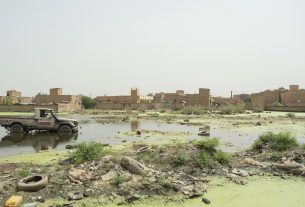Reporters Without Borders (RSF) has called for the immediate release of Liu Hanbin, a Chinese blogger detained for over a month after publishing a video highlighting a protest by farmers in Inner Mongolia against forced land seizures. Liu, who writes under the pseudonym Wen Yi Fan, has been charged with “picking quarrels and provoking trouble,” a crime that can result in up to five years in prison. RSF condemned the arrest as part of a growing pattern of repression against independent journalists and activists in China.
Liu’s detention stems from his reporting on a protest by farmers whose land was being forcibly confiscated by local authorities. The protest, which occurred in a rural area of Inner Mongolia, centered around allegations that the farmers were not adequately compensated or consulted about the land seizures. In the video posted on WeChat, Liu documented the farmers’ grievances, a move that led to his arrest by Chinese authorities. His case has sparked concerns about the state’s increasing control over independent media and the suppression of dissent in the country.
This incident is part of a broader crackdown on free speech in China, where independent reporting, particularly on issues like land confiscations and human rights violations, is heavily censored. Liu’s arrest highlights the risks faced by citizen journalists in China, who often face legal threats, harassment, and imprisonment for reporting on politically sensitive topics. According to RSF, Liu’s case raises significant concerns about the erosion of press freedom in the country, where 125 journalists and press freedom defenders are currently detained.
The Chinese government has long been criticized for its tight control over the media, limiting access to independent sources of information. The arrest of Liu, along with numerous other instances of media repression, serves as a reminder of the challenges faced by those attempting to expose corruption or abuse of power. Critics argue that the Chinese authorities use tactics such as detention, intimidation, and censorship to stifle dissent and maintain control over public discourse.
In response to Liu’s detention, Cédric Alviani, RSF’s Asia-Pacific bureau director, stated that Liu was acting in the public interest by shedding light on abuses related to land seizures and should never have been detained. Alviani also called on the international community to exert pressure on the Chinese government to secure Liu’s release, alongside the release of other journalists and human rights defenders currently held in China.
The outcome of Liu’s case will be closely monitored, as it may offer insight into the Chinese government’s willingness to tolerate dissent and the future of press freedom in the country. With the ongoing crackdown on journalism and activism, the situation underscores the growing risks for those who attempt to expose issues such as land rights and government corruption in China.



